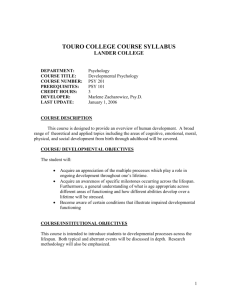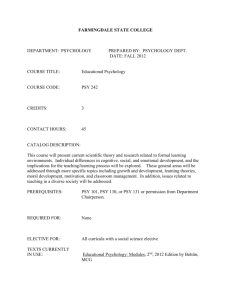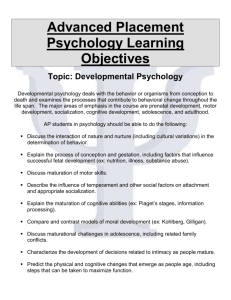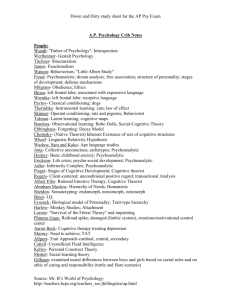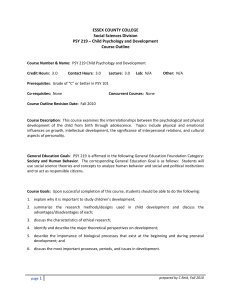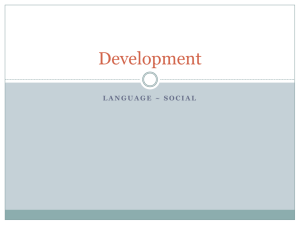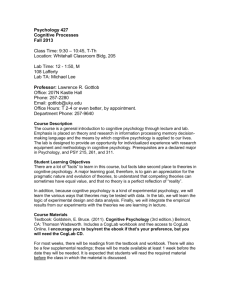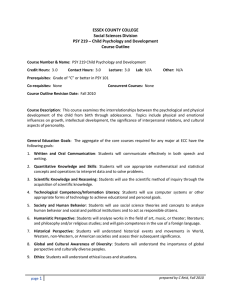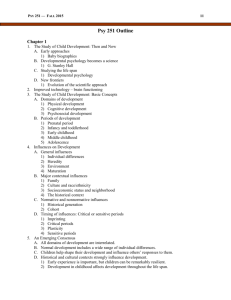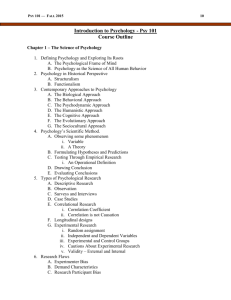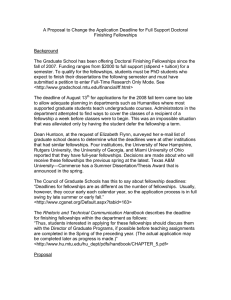PSY 241 DEVELOPMENTAL PSYCHOLOGY COURSE
advertisement
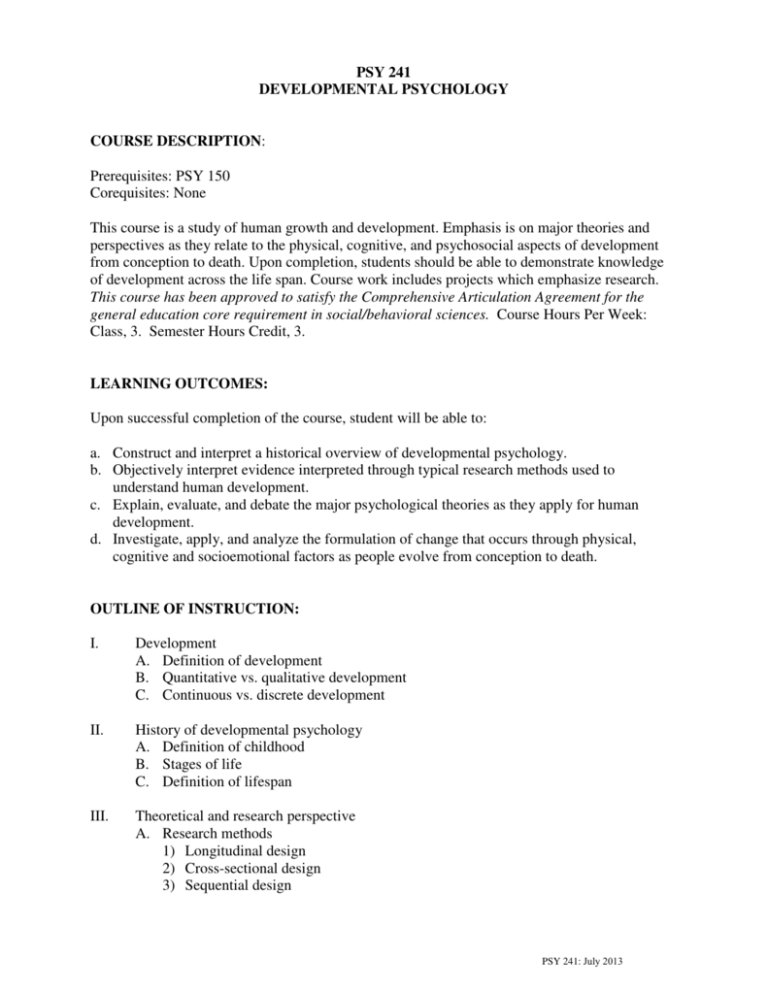
PSY 241 DEVELOPMENTAL PSYCHOLOGY COURSE DESCRIPTION: Prerequisites: PSY 150 Corequisites: None This course is a study of human growth and development. Emphasis is on major theories and perspectives as they relate to the physical, cognitive, and psychosocial aspects of development from conception to death. Upon completion, students should be able to demonstrate knowledge of development across the life span. Course work includes projects which emphasize research. This course has been approved to satisfy the Comprehensive Articulation Agreement for the general education core requirement in social/behavioral sciences. Course Hours Per Week: Class, 3. Semester Hours Credit, 3. LEARNING OUTCOMES: Upon successful completion of the course, student will be able to: a. Construct and interpret a historical overview of developmental psychology. b. Objectively interpret evidence interpreted through typical research methods used to understand human development. c. Explain, evaluate, and debate the major psychological theories as they apply for human development. d. Investigate, apply, and analyze the formulation of change that occurs through physical, cognitive and socioemotional factors as people evolve from conception to death. OUTLINE OF INSTRUCTION: I. Development A. Definition of development B. Quantitative vs. qualitative development C. Continuous vs. discrete development II. History of developmental psychology A. Definition of childhood B. Stages of life C. Definition of lifespan III. Theoretical and research perspective A. Research methods 1) Longitudinal design 2) Cross-sectional design 3) Sequential design PSY 241: July 2013 B. Freud’s psychoanalytic perspective C. Neo-Freudian perspectives 1) Erikson 2) Adler D. Piagetian perspective E. Behavioral perspective 1) Learning theory 2) Social learning theory IV. Conception and prenatal development A. Principles of genetic transmission B. Genetic abnormalities C. Abnormalities of prenatal development V. The newborn infant A. Sensations and perceptions B. Physical skills C. Early cognitive skills VI. Development through the first year A. Principles of physical development B. Physical milestones C. The development of imitation 1) Imitation and cognition 2) Imitation and social development D. Attachment and separation VII. Development in the toddler A. Physical changes B. The development of language 1) Cognitive development 2) Social development C. The importance of family and peers VIII. Development in the preschool child A. Cognitive development B. Social development IX. Development in the school age child A. Cognitive development B. Social development X. Development in the adolescent A. Cognitive development 1) Egocentric thought 2) Personal mythologies B. Social development 1) Family influences 2) Peer influences 3) Dating PSY 241: July 2013 C. Identity development D. Physical development XI. Development in the young adult A. The choice of a career B. Establishing an intimate relationship 1) The choice of a mate 2) Marriage and divorce C. Early life evaluations XII. Development in middle adulthood A. Mid-life evaluations 1) Career evaluations 2) Relationship evaluations B. Changes in family structure C. Ideas about death XIII. Late adulthood A. Sensory changes B. Intellectual changes C. Retirement D. Death and dying E. Contemporary issues related to aging REQUIRED TEXTBOOK AND MATERIALS: To be selected by instructor. STATEMENT FOR STUDENTS WITH DISABILITIES: Students who require academic accommodations due to any physical, psychological, or learning disability are encouraged to request assistance from a disability services counselor within the first two weeks of class. Likewise, students who potentially require emergency medical attention due to any chronic health condition are encouraged to disclose this information to a disability services counselor within the first two weeks of class. Counselors can be contacted by calling 919-536-7207, ext. 1413 or by visiting the Student Development Office in the Phail Wynn Jr. Student Services Center, room 1209. PSY 241: July 2013
